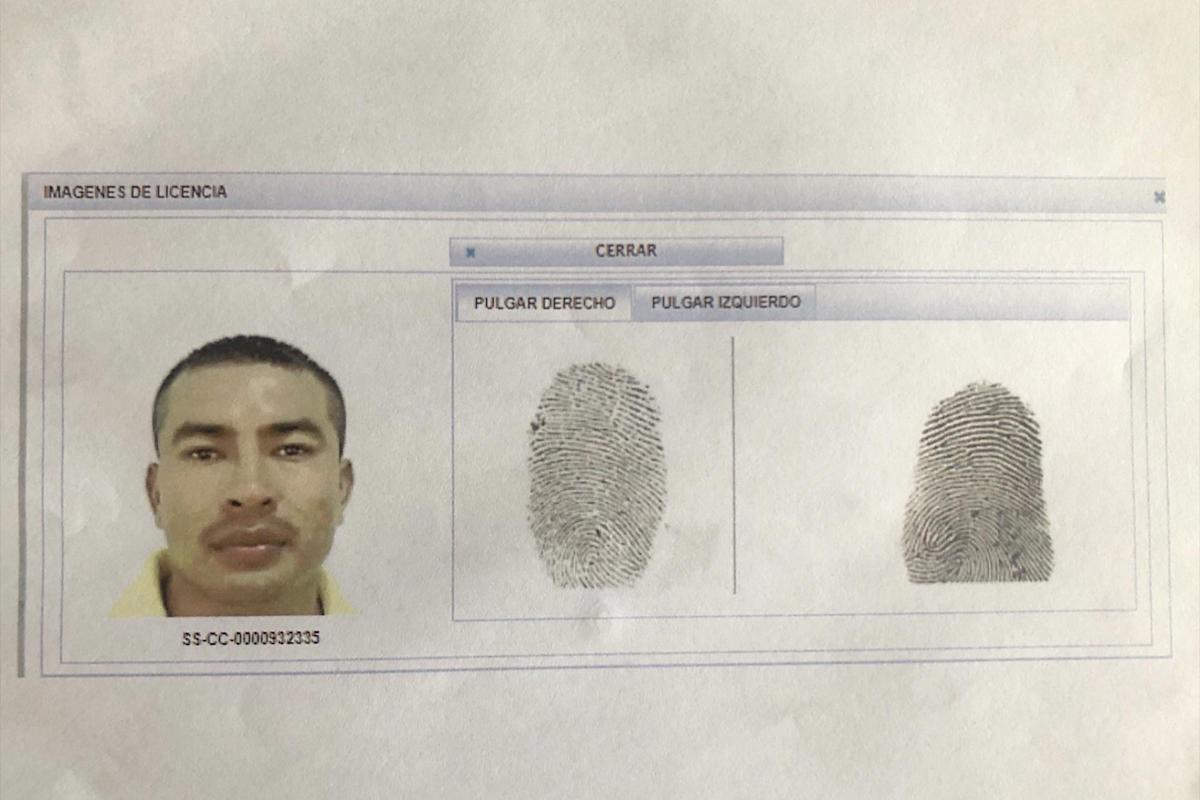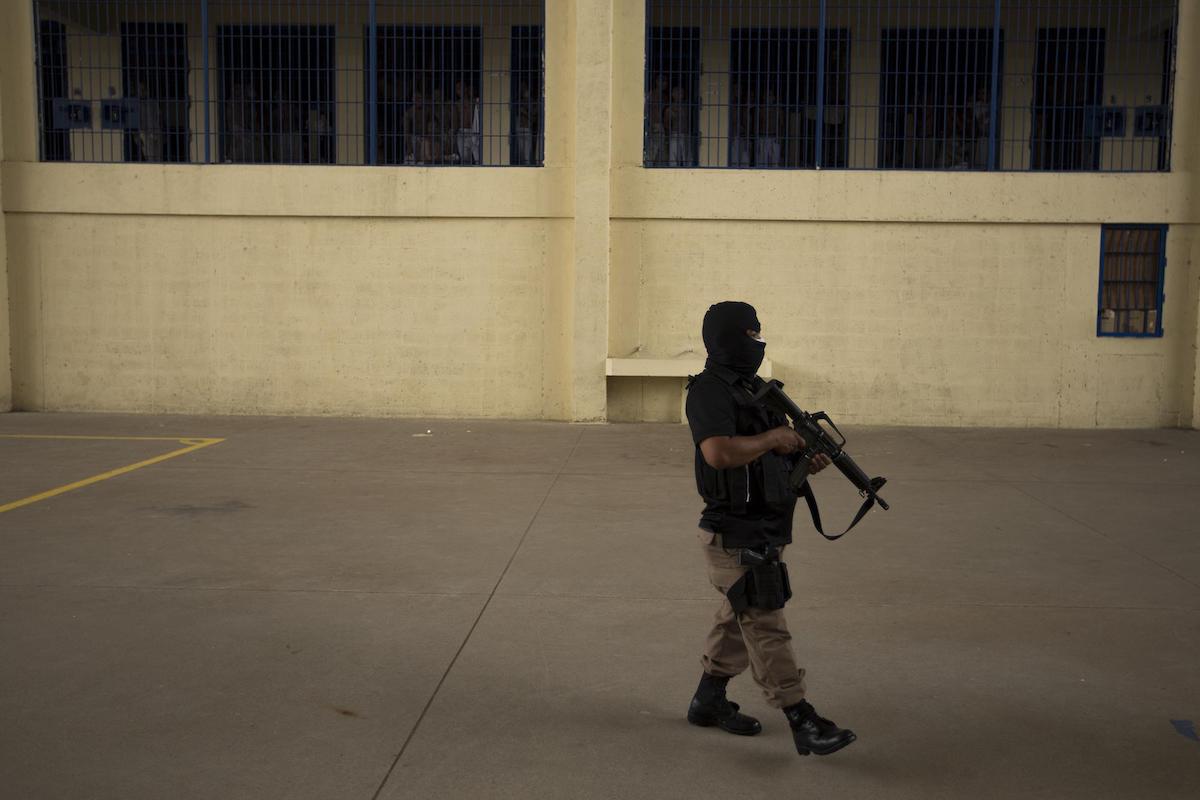

Prosecutors’ record of Danilo Antonio Colocho Hernández, alias Chino Milo, member of the MS-13 ranfla and right-hand man of national leader Diablo de Hollywood.
This is the debut feature story from the team at El Faro English. Latino Rebels will begin cross-publishing selected stories from the El Faro team. To subscribe to El Faro English’s newsletter, click here.
By Carlos Martínez, Sergio Arauz, Efren Lemus and Óscar Martínez
Editor’s Note: This article, a follow-up to El Faro’s September investigation into the negotiations between the Bukele administration and MS-13, has been adapted from the original Spanish version.
In October, the Bureau of Prisons ordered the emergency hospital transfer of Danilo Antonio Colocho Hernández —or Chino Milo, one of the leaders of the Mara Salvatrucha-13 (MS-13) who is incarcerated in Izalco Prison’s maximum-security wing— despite the prison’s chief physician issuing a report finding no medical justification for the transfer. Rather than transferring him to the nearby hospital, as emergency protocol would demand, the Prison Bureau sent him to the hospital in Zacatecoluca, 128 kilometers away.
Chino Milo, who is in prison for fraud, armed robbery, and murder, is not only a member of the ranfla—he is also the right-hand man of MS-13 national leader Diablo de Hollywood, Attorney General Raúl Melara explained to El Faro.
The hospital where he was transferred, Zacatecoluca, is home to the maximum-security prison where most of the incarcerated MS-13 senior leadership is serving time. Chino Milo’s hospital transfer took place one month after El Faro revealed President Nayib Bukele’s ongoing negotiations with the gang’s leaders, in which Director of Prisons Osiris Luna would regularly organize clandestine meetings in the maximum-security prisons of Izalco and Zacatecoluca between at-large and incarcerated members of the ranfla, or gang leadership.
These clandestine meetings, according to extensive internal Prison Bureau documents obtained by El Faro, involved negotiations between the gang and senior Bukele officials for a reduction of homicides and electoral support for Bukele’s political party, Nuevas Ideas, in the February 2021 elections.
The documents also specified that the gang leadership in Zacatecoluca was in charge of negotiating with the government, whereas those in Izalco coordinated the enforcement of the leadership’s decisions among the gang’s cliques outside of prison. Senior Bukele officials facilitated this inter-prison communication throughout the negotiations.
On October 6, 2020, one month after El Faro published revelations of the negotiations, a security officer from Izalco Prison informed the chief physician, Mario Arnulfo Herrera Espinoza, of unexplained “higher orders” from the office of Director of Prisons Osiris Luna to send Colocho Hernández on an emergency trip to the hospital in Zacatecoluca instead of to the closer-by hospital in Sonsonate. Confused about the reason for the emergency transfer, the chief doctor conducted an exhaustive evaluation and found that Colocho Hernández showed no signs of health problems. He then signed and sealed a report detailing his findings. Dr. Herrera Espinoza declined multiple requests for comment.
Top-Down Instructions From the Prisons Bureau
Prison Bureau regulations specify that only a prison’s chief physician authorize an emergency hospital transfer —not the warden or even the Director of Prisons— after determining that adequate on-site treatment is impossible. Emergency transfers go to the nearest hospital.
Handwritten Izalco Prison logbooks obtained by El Faro show four October hospital trips from Izalco, each involving five incarcerated members of the MS-13 ranfla. In three of these, Osiris Luna himself gave the transfer order. Two of these five leaders were Borromeo Enrique Henríquez, alias “Diablo,” and Tiberio Valladares, alias “Snyder,” longtime gang leaders and protagonists of the 2012 negotiations with the Funes administration.
The Zacatecoluca logbook shows that Diablo was transferred to Santa Teresa Hospital in Zacatecoluca on November 1, 2019. A driver and passenger, one from the Prisons Bureau and the other from the Special Operations Group of the National Civil Police, then picked Diablo up that afternoon and transported him to Saldaña Hospital in San Salvador, according to the record. Late that night, they brought him back to Santa Teresa and, finally, to Izalco Prison. The logbook did not specify who authorized these trips.
Just over a week later, a driver, two police officers and a nurse transferred Tiberio Valladares, or Snyder, to Santa Teresa to treat colitis and high blood pressure. Osiris Luna had approved the transfer, according to the Zacatecoluca logbook. On January 27, 2020, a government vehicle transported Mario Roberto Vidaurro Herrera, alias “Skyny de Stoner,” and César Antonio López Larios, alias “Greñas de Stoner,” on emergency medical trips accompanied by three police officers and another car of three soldiers. Next to their hospital check-in time, the logbook noted that the director of prisons and the Zacatecoluca warden had approved the transfer.
The Attorney General’s Office has labeled Greñas de Stoner as a member of MS-13’s national ranfla, and Skyny de Stoner as one of the members of the ranfla imprisoned in Izalco.
Another page, this time typed on official prison letterhead and dated August 8, 2020, confirmed the transfer of Román Ernesto Reyes Aguilar —named by the National Civil Police in 2019 as a member of the ranfla— from Izalco to Zacamil National Hospital in San Salvador with the authorization of the Izalco warden and Luna.
All of the gang members whose releases to hospitals were ordered directly by Director Osiris Luna were part of the national leadership of the Mara Salvatrucha-13. Chino Milo, whose release was ordered by Luna’s assistant, is not an exception.
‘I Did Not Authorize This Release’
Ana Ruth González Navarro, judge in the Second Court of Penitentiary Oversight in San Salvador and in charge of gang member Colocho Hernández’s sentencing, objected to Chino Milo’s emergency hospital transfer. “I did not authorize any release from the prison because nobody asked me to. In the court there is no record nor existence of any release or a medical certificate declaring that the inmate needs medical attention,” González Navarro said.
According to the judge, Article 92 of the Penitentiary Law establishes that releases from a prison for medical consultations may be authorized by the courts of penitentiary oversight, by the prison advisors, and by the directors of each prison, with an order from the prison doctor. “They should have told me because this court is responsible for its oversight, but I received no official communication.” The judge explained that some prison directors inform the courts about every prisoner release, but the current bureau, run by Luna, has typically not informed the courts about transfers or releases.


A prison guard walks through a sector of the maximum-security wing of Izalco during an official visit by the director of prisons, Osiris Luna. (Photo: Víctor Peña/El Faro)
Since last September when El Faro published the investigation into the negotiations between MS-13 and the government, the President and many of his officials have denied the story and accused El Faro of fabrication, despite El Faro publishing various official documents corroborating the story. The Attorney General’s Office opened an investigation into the matter that is ongoing. Some U.S. Republican members of congress sent a letter to Bukele expressing their concern about the revelations. Bukele responded by undermining the importance of the missive sent from Washington.
El Faro reached out to César Salinas, assistant director to Osiris Luna, to Osiris Luna himself, and to Alejo Carbajal, head of communications for the Bureau of Prison, explaining the scope of this article and seeking comment. When reached by phone, both Salinas and Luna hung up. By the time of publication, none of the above have responded.
*Adapted from Spanish by Roman Gressier and John Washington
***
El Faro English is a project from the award-winning Central American media outlet, El Faro, which focuses on hard-hitting investigations, culture, and analysis from Central America and beyond. In addition to translating reporting from El Faro, we publish original investigations and opinion articles and translate stories from partner media outlets throughout the region about migration, politics, culture, historical memory, violence and more from Central American communities in the region, Mexico, Europe, and the United States. Twitter: @elfaroenglish. To subscribe to El Faro English’s letter, subscribe here.


